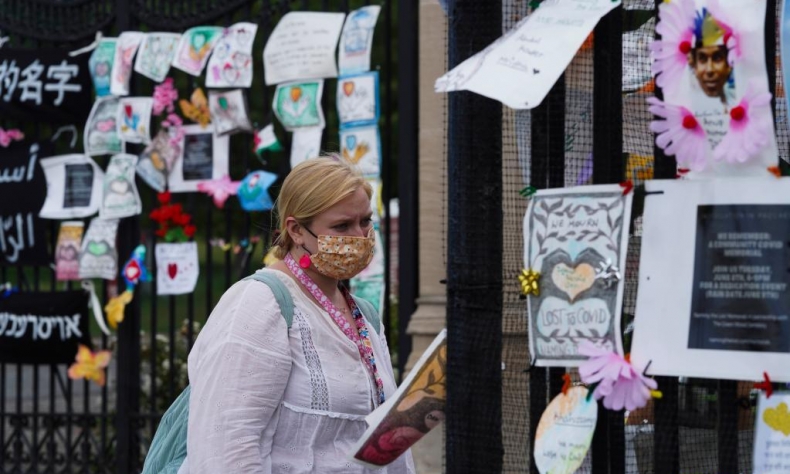Strive for a Global Community of Health for All

At such a critical moment, humanity should work together to defeat COVID-19, and strive for a more resilient global health system which can protect the lives of future generations.
As the most serious pandemic in a century continues to wreak havoc after lingering across the globe for more than a year, defeating COVID-19 as soon as possible so as to ensure economic and social activities can return to normalcy has become the shared wish of people all over the world.
In the wake of such challenges, China, at the Global Health Summit which was held in May, called on the international community to work together to build a global community of health for all. The five initiatives China proposed during the summit demonstrate its commitment and resolve to contributing to the global fight against the pandemic.
The people-centered philosophy is crucial when it comes to building a global community of health for all, as people’s lives and health are the most fundamental human right. In the wake of the pandemic, it is the responsibility of the governments of all countries to make every effort to safeguard their people’s lives and health.
After the pandemic broke out, the Chinese government adopted strict domestic prevention and control measures to contain the coronavirus, treat patients and save lives. It also offered assistance to the international community to the best of its ability to contribute to global prevention and control of the coronavirus. Given the daunting challenges brought about by the pandemic, governments of all countries should respect the life and dignity of every single person. The international community will not overcome COVID-19 by politicizing it.
The COVID-19 pandemic has revealed inadequacies in the global governance system, especially regarding the governance of global health. It meets the universal needs of all countries and the fundamental interests of humanity to scale up efforts to make the global governance system more equitable and rational.
Since the outbreak of the pandemic, China has worked with the rest of the world to fight the virus. Following the global governance philosophy which includes extensive consultation, joint contribution and shared benefits, the country has boosted reforms to the global governance system, and stepped up efforts to improve the institutions necessary for dealing with the common problems facing mankind.
However, a good global governance system should be one where the voice of developing countries can also be heard, and the will and interests of all countries can be equally considered. In that way, all the people of the world will have access to a global public good and benefit from the global governance system.
Moreover, every nation, and especially major countries, should fulfill their responsibilities, which is also vital for building a global community of health for all.
Currently, the global disparity in vaccine access remains one of the biggest hurdles to ending the pandemic. In this regard, major countries must cooperate with each other to help close the immunization gap among countries as soon as possible and ensure vaccines are truly accessible and affordable public goods for the people of different countries.
China has played its role as a responsible major country, and offered assistance to the international community in fighting the virus to the best of its ability. So far, it has provided at least 300 million doses of vaccines to other countries, especially developing nations, and carried out vaccine cooperation to help them build up their defenses and safeguard people’s lives.
In the face of the pandemic, China’s commitment and initiatives will inject strong momentum into the global pandemic fight and economic recovery. At such a critical moment, humanity should work together to defeat COVID-19, and strive for a more resilient global health system which can protect the lives of future generations.
This article was written in Chinese and translated by Gong Yingchun.
Dr. Zhou Luming is editor of Qiushi Journal. His research interests include China’s diplomacy and international relations.
 Facebook
Facebook
 Twitter
Twitter
 Linkedin
Linkedin
 Google +
Google +










